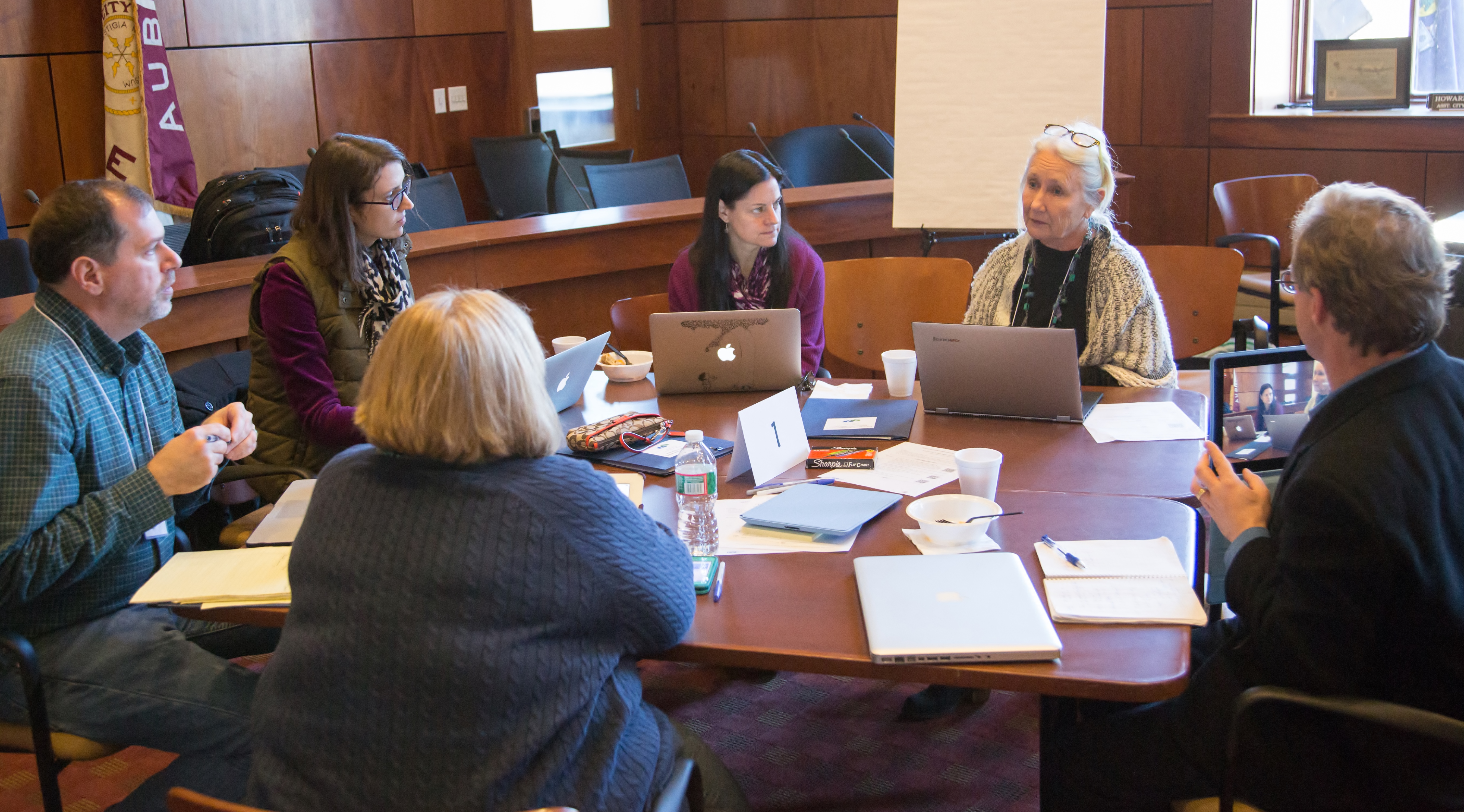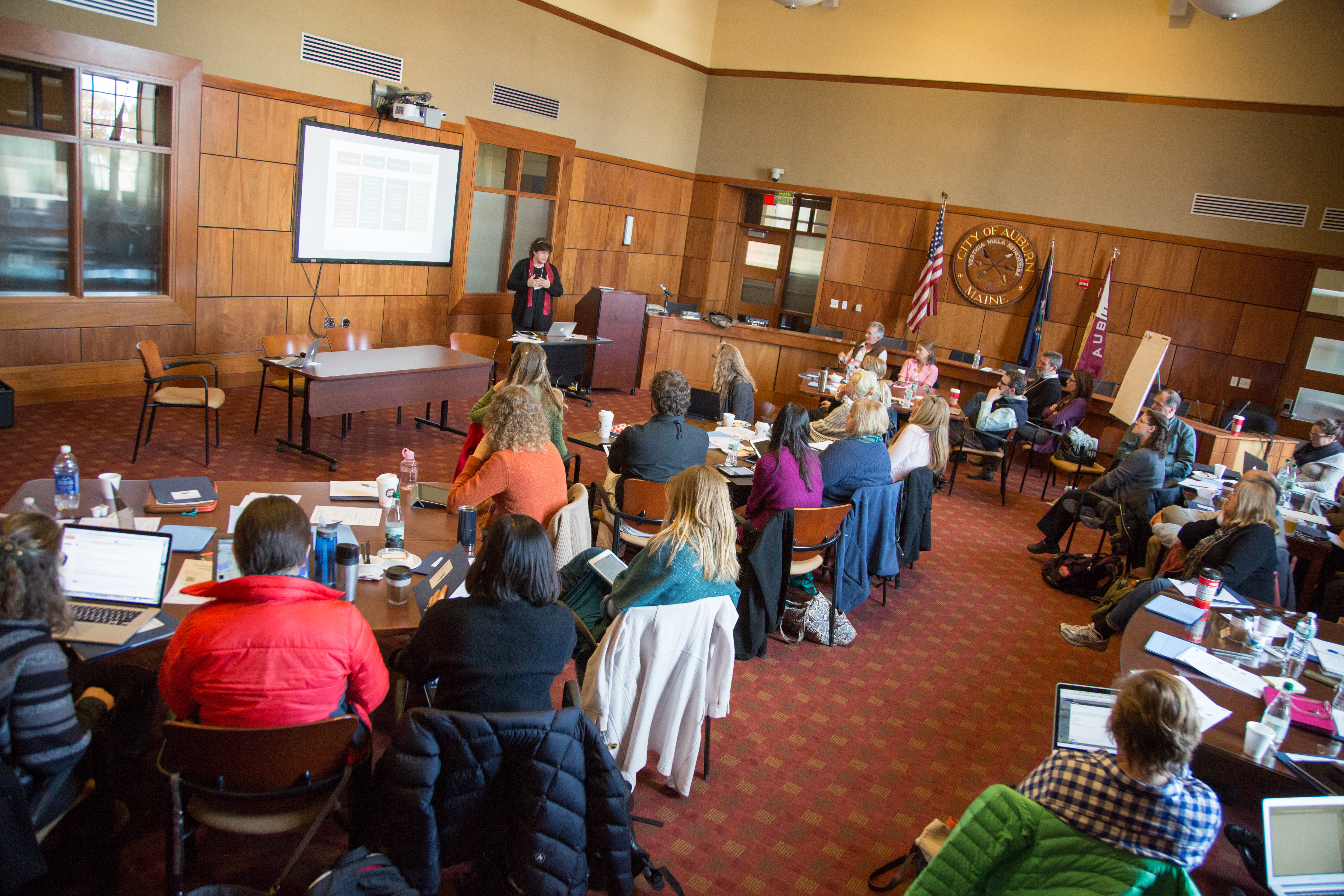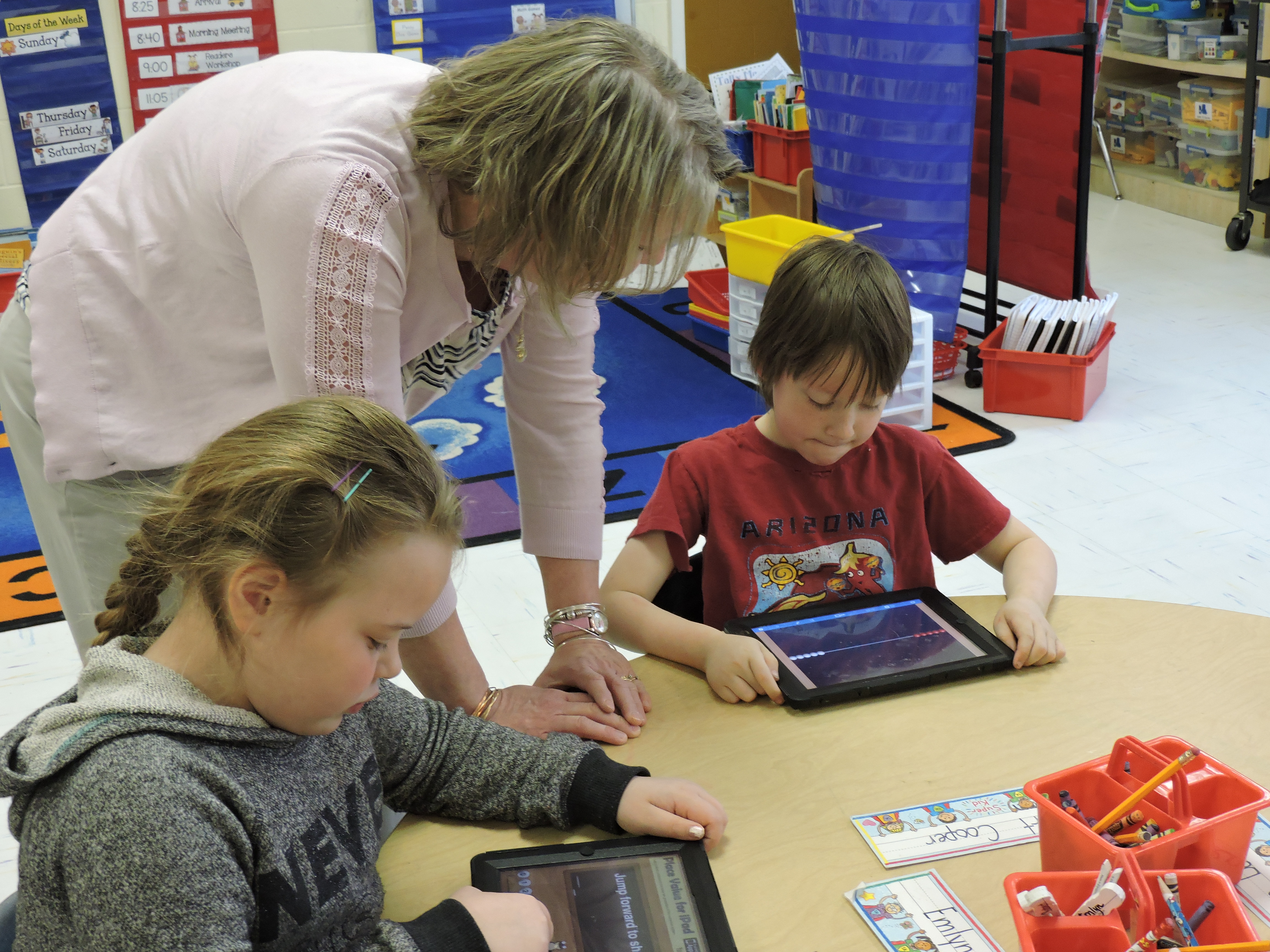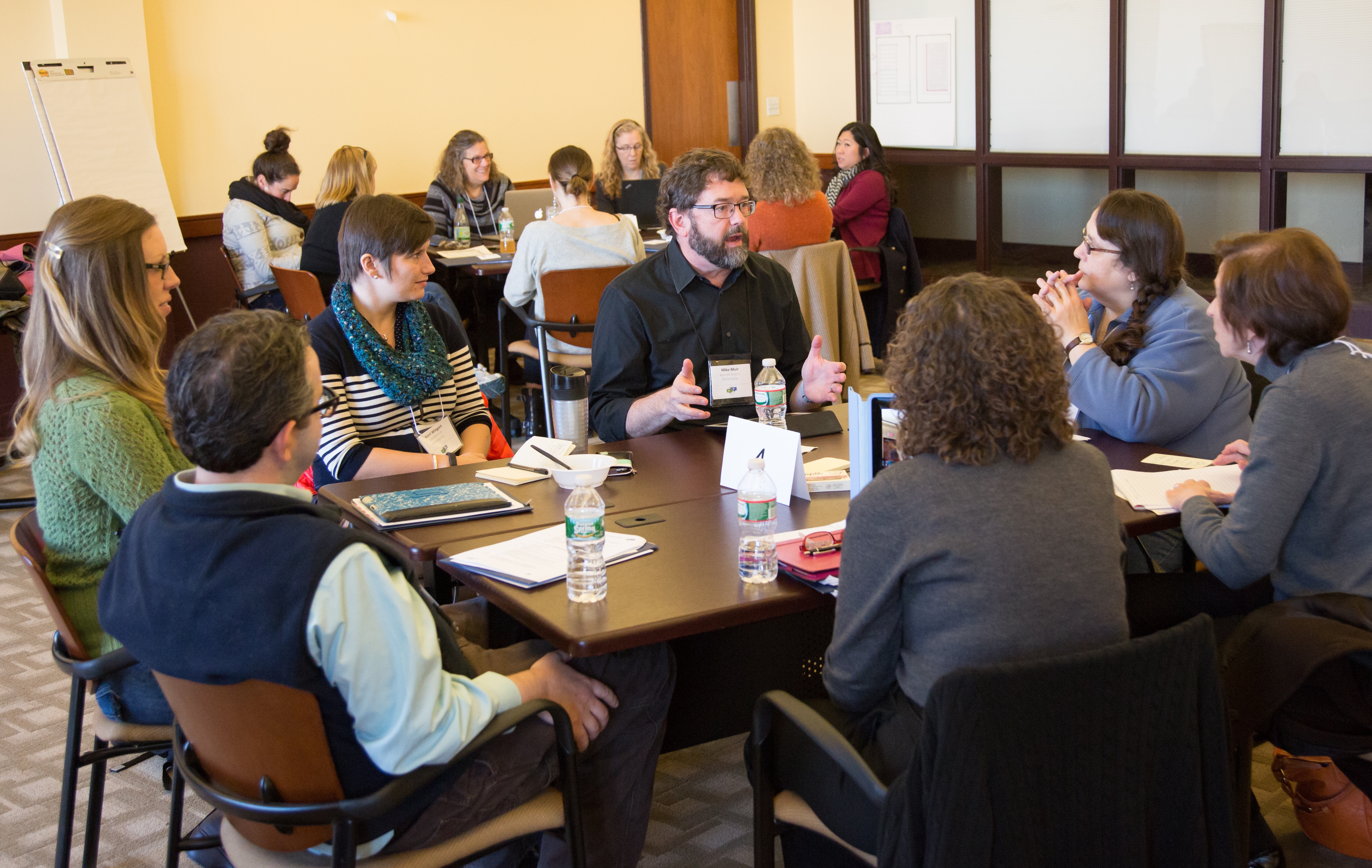About Us
What Is Interactive STEM?
The Interactive STEM team at EDC is a major partner in the Research + Practice Collaboratory, a five-year initiative funded by the National Science Foundation to strengthen and reframe the relationship between research and teacher practice in STEM education in K–12 and informal settings. The Interactive STEM team is leading the R+P Collaboratory’s interactive technologies focal area. The Interactive STEM team is:
- developing and studying a model of research-practice collaboration that we hope will lead to transformational and sustainable change. We are partnering with the Auburn, Maine, School Department and Maine researchers to improve student learning of mathematics in the early grades through the integration of interactive mobile technologies such as iPads. Through the partnership, teams of teachers, administrators, researchers, coaches, and EDC facilitators are engaging in collaborative inquiry through an iterative process of designing, testing, and analyzing to generate new knowledge and practice in direct response to a district need. [More]
- organizing forums for engagement across research and practice communities. Through a series of Inquiry Groups, we are purposely designing meetings in which research as well as practice knowledge and perspectives are invited into the conversation, valued, synthesized, and then shared through products such as the “Framework for Integrating Interactive Mobile Technology in the Early Mathematics Classroom.” [More]
- publishing a series of briefs, tools, and videos to expand access to usable knowledge generated by researchers and practitioners in dialogue with one another. Topics are chosen in direct response to needs that arise at the Auburn, Maine, site. They are initially created as resources for specific partners and are then published on this website. [More]
What Is the Research + Practice Collaboratory?
The Research + Practice Collaboratory is engaging researchers and practitioners around the country in an effort to address the long-standing gap between educational research and practice in STEM education. Over five years, the Collaboratory is focusing on implementation research in four focal areas:
- STEM Practices
- Learning Across Settings
- Interactive Technologies
- Formative Assessment
In each of the areas, the Collaboratory partners are using a design-based implementation research, or DBIR, approach to create new models of research, practitioner tools, and resources. The Collaboratory’s aim is to improve access to existing research, create new forums for cultural exchange across research and practice, and prototype new research-based initiatives to improve STEM learning.
Problem and Goals
The Research + Practice Collaboratory reimagines and develops new resources and models to strengthen the relationship between research and practice in STEM education. The mission of the Collaboratory is to:
- expand access to usable knowledge generated through research and practice “in dialogue” with each other,
- create forums for critical engagement across research and practice communities, and
- develop and study new models of research–practice collaborations that can lead to transformational and sustainable change in STEM education.
Governance
The Collaboratory lead organizations are the Exploratorium, the University of Washington, Colorado University Boulder, Education Development Center, and Inverness Research Associates. As a Collaboratory, the project consists of a collection of networked and geographically distributed activities with a common aim: to explore different dimensions of a “problem space” defined as a need to better understand and document the needs for, productive strategies for, and benefits of strengthening the relationship between research and practice with respect to the Collaboratory’s four focal themes.







